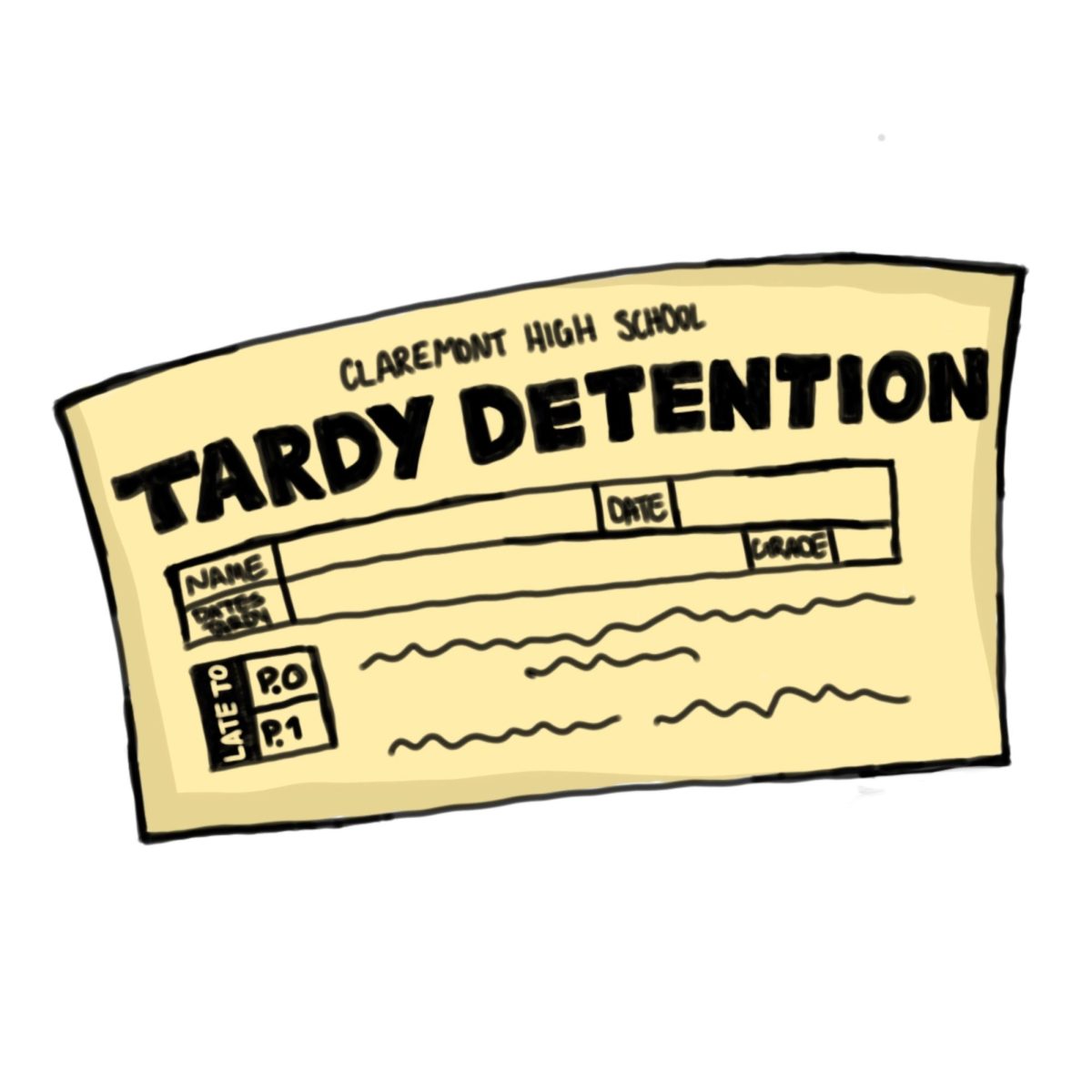Students at CHS are constantly contemplating the question that keeps them all on their toes: to delay or not to delay going to school. However, many have not faced the new consequences to the latter part of the question.
A response to skipping class has just been mandated. Starting Monday, March 10, a detention policy instructs that students who are tardy up to three times to their zero and first periods will receive detention. The reason this new rule emerged in the middle of the school year remains a mystery, and students are now left to cope with the effects of the new mandate. Mr. Easton, the Assistant Principal of Discipline of CHS, feels strongly about the newfound policy.
“The goal here is to make sure that you graduate and get a high school diploma, but the secondary goal is to teach you life-long lessons,” Easton said. “Can you show up late every day at your job? No, you would get fired. That’s one of the things we are looking forward to teaching kids; showing up on time.”
Not only does this penalty teach the value of being on time to all students, but it also enforces a seed of responsibility within the individual. This prepares them for real-world events like the workplace.
Educators at CHS are another big reason this new policy was implemented. Each year, teachers and staff commit to offering a zero-period class. Teachers take on the responsibility and time to ensure the graduation of every class and every student they teach. However, teachers are not obligated to offer this class, so students should not take this option for granted. It would only make sense that students should make it to class on time. Ensuring that teachers and students do not waste precious learning time each day is very important, as it could result in lower test scores and the risk of failing their classes.
Plenty of students who would be dedicated to showing up to zero-period classes on time are not able to have a zero period. There are a limited number of slots available for certain classes and students should use their time responsibly to attend their classes on time. In order to urge students to get to class on time and to understand that having a zero period is a privilege, these new policies are here to enforce and encourage them to take attendance seriously.
However, this new strategy could further harm dependent students. Students who do not always have a reliable source of transportation are not being tested on their responsibility, because they are dependent on others to get to school. Most high school students are minors, and less than half can drive. Senior Ziamara Fountain-Rife speaks up about injustices in the new policy.
“I think for underclassmen it is unfair because usually it is their parents taking them to school so they are not really in control of what time they get here,” Fountain-Rife said. “And I feel like being late, if it is less than five minutes, also should not be an issue because you are not missing a lot of content. I feel like it is a little bit strict.”
She also believes that students may begin to avoid class altogether to prevent the possibility of detention.
“I think that the intention with the policy is to get people to be on time and be more present in class, but the effect that it has is actually that people would think ‘I don’t want a detention, I’m not going to go to class,’ and so I think it has the opposite effect,” Fountain-Rife said.
With all of the newly sprung controversies about the detention penalty, only time will tell where this will take students as far as responsibility and effectiveness. Hopefully this new policy will encourage students to take school a little more seriously, and not skip classes entirely.









